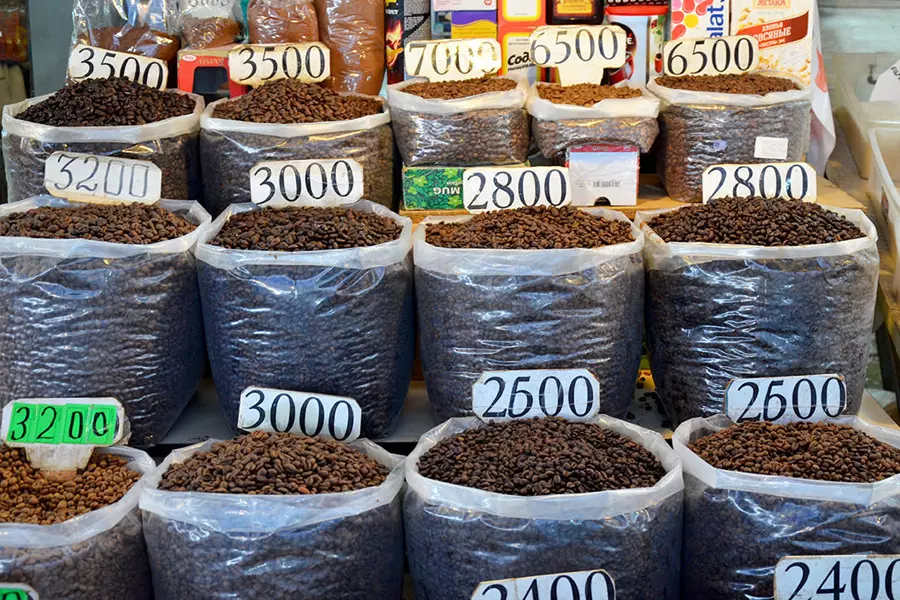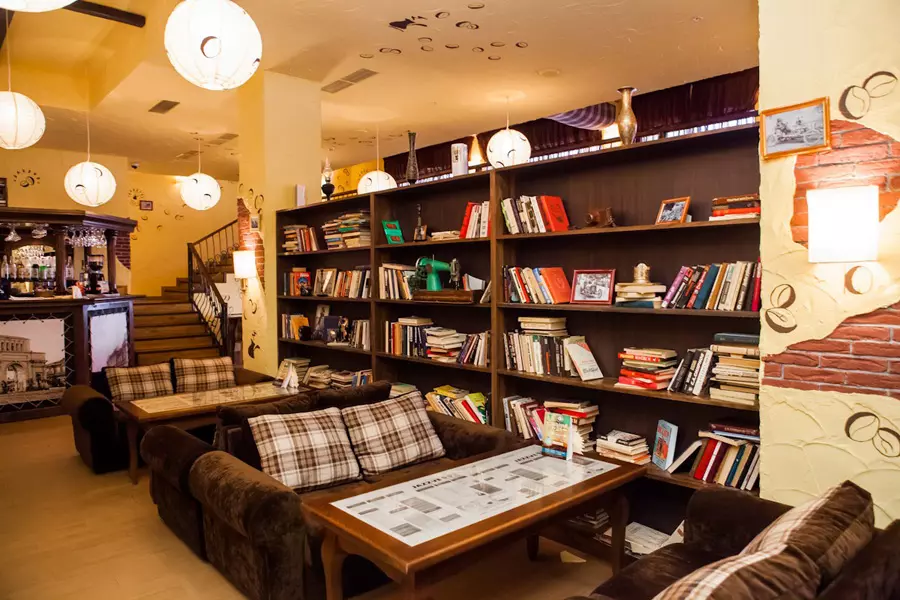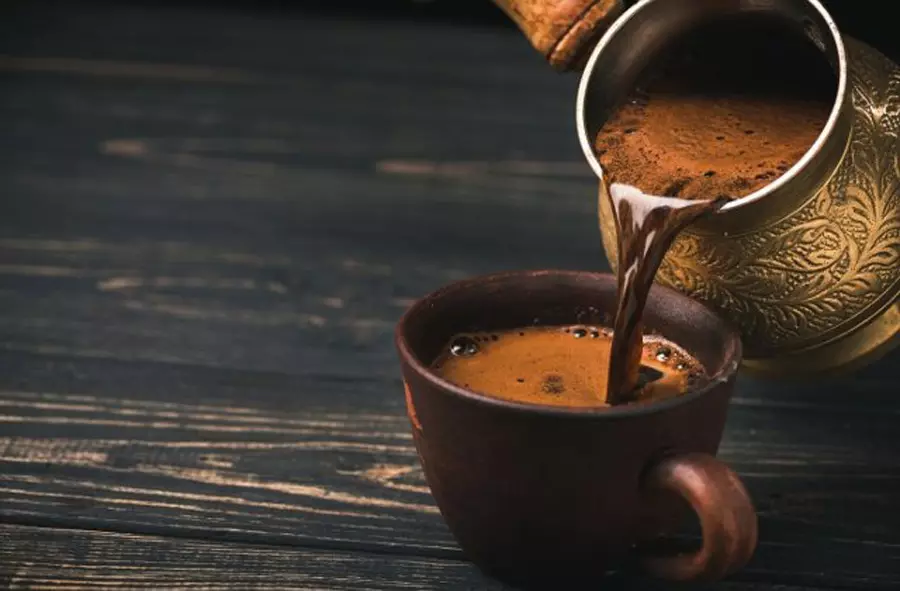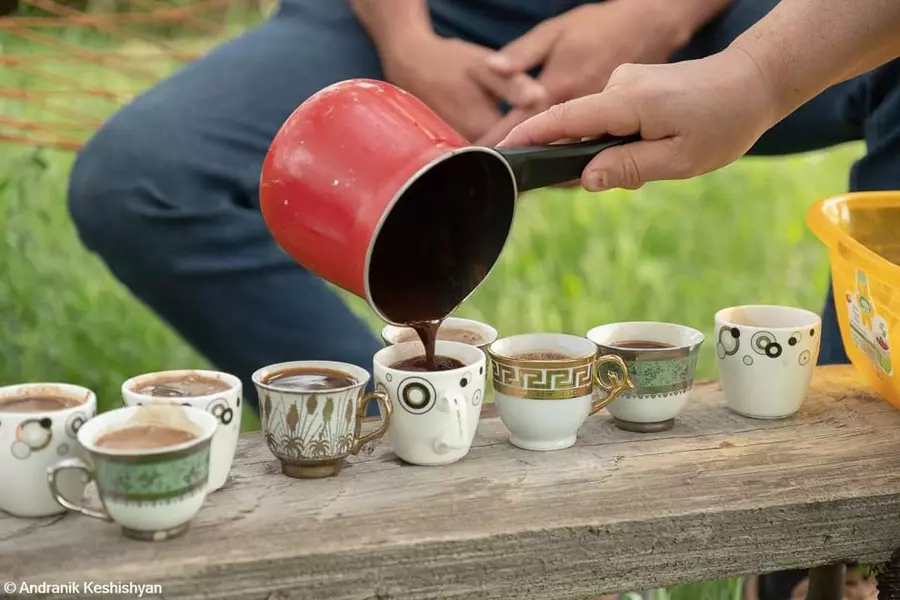In almost every Armenian family, the morning begins with a glass of freshly brewed coffee, the aroma of which permeates the entire apartment and house, invigorating and inviting everyone to gather around the drink of the gods.
According to statistics, every Armenian drinks more than 3.5 kilograms of coffee per year, or approximately 67 liters of this invigorating beverage. And if you’re visiting someone in Armenia, the first thing you’ll be offered is aromatic, freshly brewed Armenian coffee. Even the word for coffee is unique to Armenians—”surch,” although it sounds roughly the same in all other languages.

A Little History
Coffee is believed to have originated in Ethiopia, and there are several theories about its discovery there. One dates it back to the mid-9th century, when a shepherd noticed that his goats became incredibly energetic after eating certain berries. Judging by the first mentions in Arabic sources, roasting and grinding didn’t begin until the 13th century. The first real public coffeehouse in the world opened in 1475 in Constantinople. In the early 16th century, coffee opened its doors to Europe; in 1615, it established itself there thanks to the efforts of Venetian merchants, and by 1670, coffeehouses had sprung up in virtually every major city.

The Contribution of Armenians to the Popularization of the Aromatic Drink
Did you know that it was Armenians who opened the first coffeehouses in Europe in the 17th century, ushering in the era of coffee bliss? In 1652, a coffeehouse opened on St. Michael’s Alley in London’s Cornhill district, at the instigation of Pasqua Rose. He came to the British capital with the merchant Edwards, a fan of Eastern-style coffee. The young man’s responsibilities included preparing and serving coffee. One day, Edwards lent the nimble Armenian protégé money to open the first coffee house in London. Success in the English capital led to Pasqua Rose (aka Pascal Harutyun) subsequently creating a chain of coffeehouses, opening establishments in Venice, Marseille, Paris, Vienna, and Berlin.
The very first coffeehouses in Vienna and Paris were also opened by Armenians. There are even documents confirming that the first Viennese coffeehouse was opened in 1685 by an Armenian merchant. Johannes Diodato (Hovhannes Astvatsatur) received from the imperial court the first, exclusive privilege to prepare and sell coffee in Vienna.

Parisians also first tasted coffee from an Armenian. Although French kings had already become familiar with the drink, it only became widespread in 1671, when an Armenian named Pasquali Harokian (Pascal the Armenian) opened the first coffee shop in Paris in a stall at the Saint-Germain fair.
Coffee was first brought and distributed to the Czech Republic by an Armenian named Gevorg Astvatsaturian. In 1705, arriving in Prague penniless, he started his own business, walking around the city with a small stove and offering passersby the wonderful drink in small cups. Soon, Gevorg founded Prague’s first coffee shop, having received permission to do so from Emperor Joseph I. In January 1708, the first public coffee shop opened in a house called “At the Golden Snake” on Karlova Lane in the Old Town district.
The Armenian Method of Making Coffee

So what is “Armenian” coffee like? A teaspoon of coffee, one coffee cup of water, and some add a little sugar to taste are poured into a “jazv” (coffee maker). The coffee maker is removed from the heat after the foam forms, but before it boils. For a special touch, cognac is sometimes added.
The foam that forms while brewing coffee is called “ser,” which in Armenian also means “love.” If you’re served coffee with foam in Armenia, it means it was made with love.

Coffee in Armenia isn’t just an invigorating drink; it’s a reason to get together, sit, and talk. Women love to have their fortunes read in the coffee grounds afterwards. Yerevan residents even coined the hashtag #kofekentron (coffee in the city center) for their social media posts, inviting friends over for a cup of the aromatic beverage.
Join our tours to Armenia, and we’ll prepare a true “Armenian coffee” for you, always with love, and even tell your fortune in the coffee grounds.